Water security is defined as the ability to access and benefit from affordable, adequate, reliable, and safe water for general well-being and a healthy life.
Focus on reducing outdoor water use, such as what we use to water grass yards and maintain pools, because it accounts for as much as 70% of municipal water use. In contrast, over 90% of water used indoors is treated and recycled in Arizona.
Municipal demand comprises less than 40% of total water demand in Central Arizona, and Colorado River water makes up only about 40% of that demand. Groundwater, Salt River Project water, and reclaimed water make up the rest. Long-term reductions in outdoor water use by urban users are helpful because they enable water providers to stretch available supplies to serve more people and businesses. While helpful, especially at a local level, reductions in municipal water use won’t necessarily translate into water left in Lake Mead: Junior priority users are entitled and eager to use water that more senior contract holders leave in the system. Learn more.
Experts are most concerned about parts of the state that are largely reliant on a single resource like the Colorado River, which is currently experiencing a megadrought, or only groundwater. We should be paying the most attention to the strategies we need to manage risk in those areas. Marginalized populations in high-income countries are the communities that most often experience water insecurity. In the U.S., this includes low-income families, migrant workers, minority-headed households, houseless people, and tribal populations. For example, across the Navajo Nation, lack of access to potable water is common, and that access is hindered by water infrastructure costs, which can be as much as 70 times higher for a Navajo family relying on hauled water than for non-Indigenous families with piped delivery.
Arizona Water for All uses community-participatory research approaches to address water insecurity. We offer communities a pathway to solicit research that centers their water needs—and access to data that communicate those water needs to decision-makers. We recognize that climate change and infrastructural decline make it difficult to bring piped water to everyone who needs it. For these reasons, we do not pursue “one-size-fits-all” solutions. Instead, we work alongside communities to co-develop programs and technologies that address their unique water needs.
For example, community-based participatory research (CBPR) is a collaborative process between community members, community-based organizations, and academics. Arizona Water for All seeks to build long-term relationships with community members impacted by water insecurity to better understand their situations and create programs and technologies that directly address their interests and concerns. CBPR has the potential to make research more responsive to existing needs and to enhance a community’s ability to address important health issues.
Tools
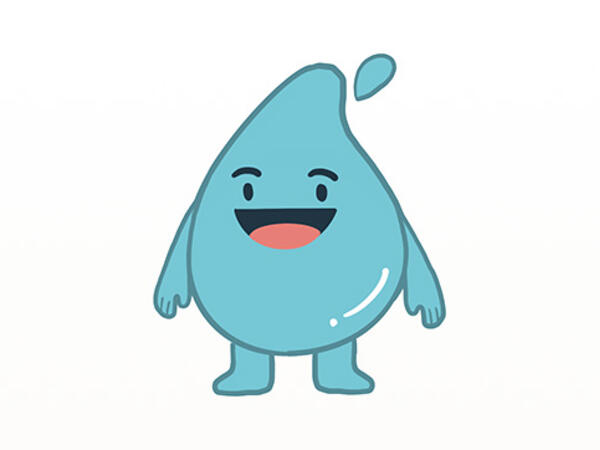
Arizona Water Chatbot
Arizona Water Chatbot is your Grand Canyon State water pal. Learn about drought, water conservation, and creative ways to protect our desert oasis's vital resource. Together, we can improve Arizona's water future!…
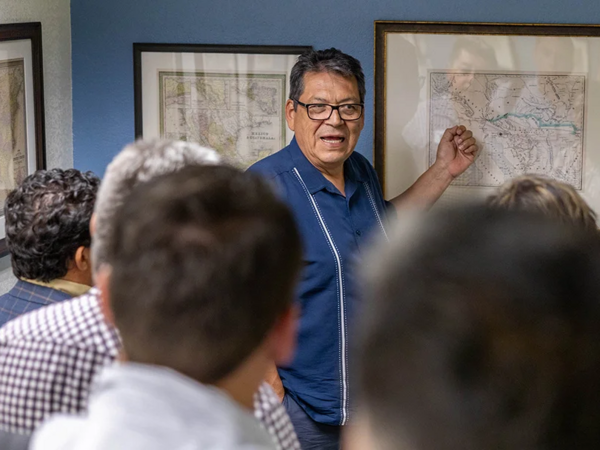
Water Augmentation Maps
A collection of augmentation concepts such as groundwater projects, surface water projects, ocean desalination, and infrastructure projects that are currently in place or are proposed for future projects delivered via a…
Fact sheets
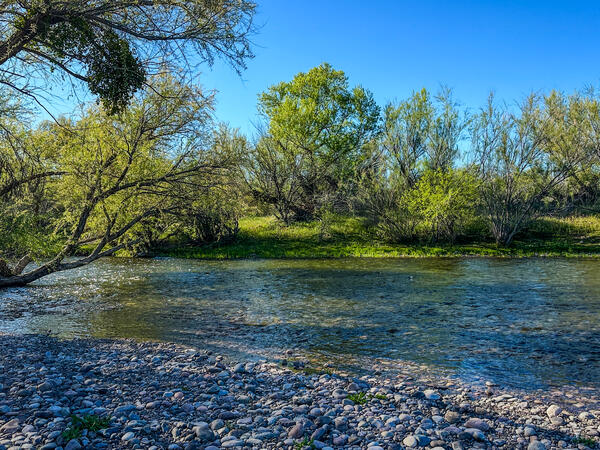
Yavapai-Apache Nation Water Rights Settlement Agreement
The Yavapai-Apache Nation Water Rights Settlement Agreement is a landmark agreement that would settle the Tribe's longstanding water rights claim in the Verde River watershed. Learn more in this explainer from the Kyl…
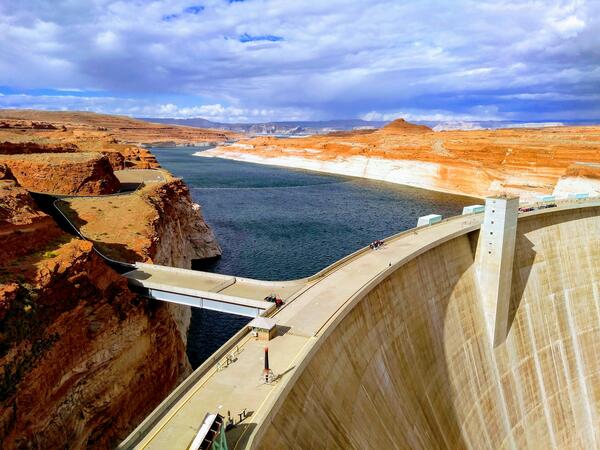
The Northeastern Arizona Indian Water Rights Settlement Agreement
The Navajo Nation, Hopi Tribe and San Juan Southern Paiute Tribe approved the proposed Northeastern Arizona Indian Water Rights Settlement Agreement. Learn more in this explainer from the Kyl Center for Water Policy and…
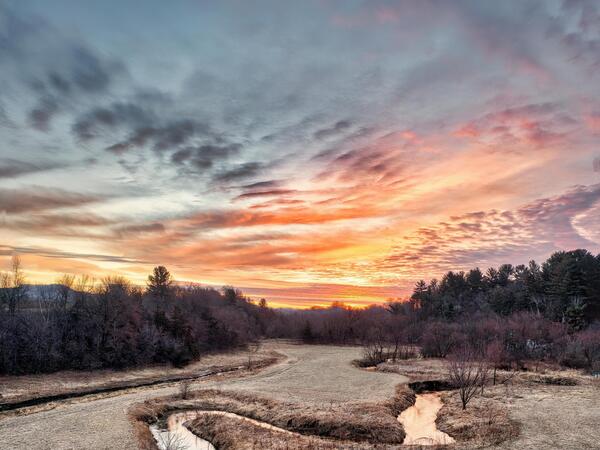
Tribal Water Policy
In recognition of the unique sovereignty and water rights of Tribal nations, a program from the Kyl Center for Water Policy and the Arizona Water Innovation Initiative aims foster collaboration and broader understanding…
Research and policy briefs
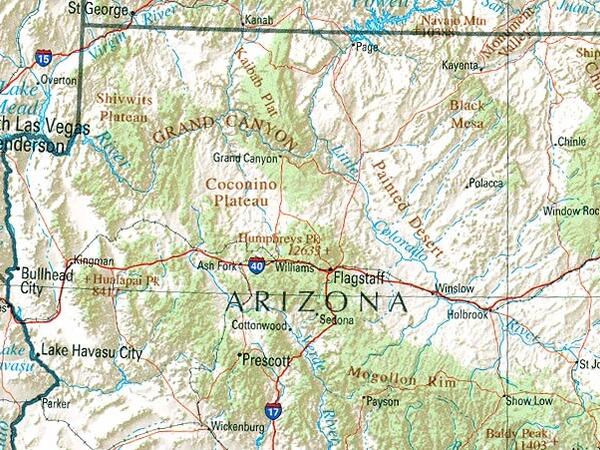
Northern Arizona Water Affordability Study
Access to safe, reliable, affordable drinking water is the foundation of public health, economic opportunity, and quality of life in any community. Yet, significant challenges associated with providing and…
Newsletters
Interested in keeping up with our events, news, and resources? Sign up for our newsletter today!
Sign up
Videos and webinars

What About Water? podcast
"What About Water? with Jay Famiglietti" connects water science with the stories that bring about solutions, adaptation, and action for the world's water realities. Presented by Arizona State University and the University…

Water Talk podcast
Water Talk brings together communities to explore water issues, including climate change, scarcity, and access. Hosted by Faith Kearns, Mallika Nocco, and Samuel Sandoval.
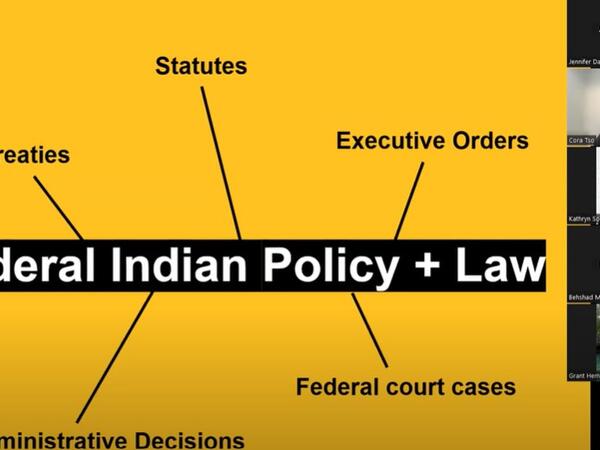
Arizona Tribal Water Rights: How did we get here?
Arizona is home to twenty-two Native American Tribes, each with historic and unique water rights and legal considerations shaped by federal policies, treaties, court decisions and legislative actions. Learn more with this…
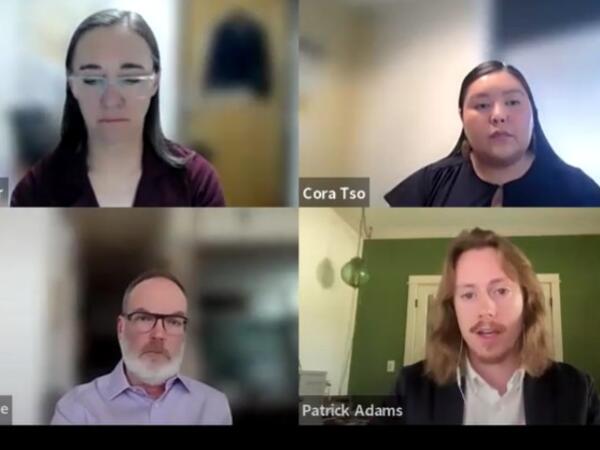
Northeastern Arizona Indian Water Rights Settlement Agreement Webinar
For over 60 years, the Navajo Nation and Hopi Tribe have been engaged in legal battles to secure their water rights. In May, these Tribes and other parties announced a landmark settlement. Watch this webinar from the Kyl…
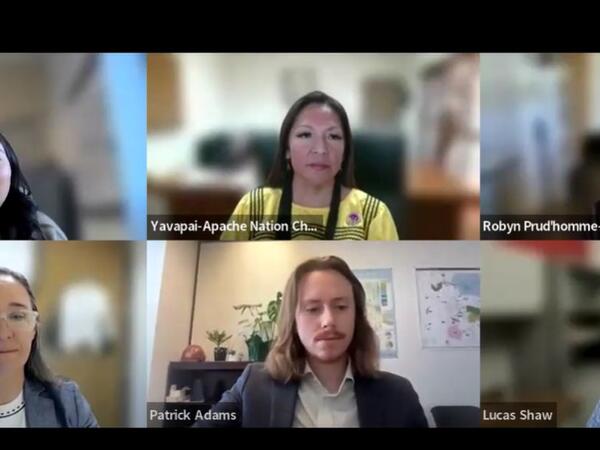
Yavapai-Apache Nation Water Rights Settlement Agreement
The Verde River is a crucial water source for Yavapai County and the Phoenix area. For over 50 years, the Yavapai-Apache Nation (the Nation) has been engaged in legal and political battles to secure its water rights.…
The Navajo Nation, Hopi Tribe and San Juan Southern Paiute Tribe approved the proposed Northeastern Arizona Indian Water Rights Settlement Agreement. Learn more in this explainer from the Kyl Center for Water Policy and the Arizona Water Innovation Initiative.
Arizona Water Chatbot is your Grand Canyon State water pal. Learn about drought, water conservation, and creative ways to protect our desert oasis's vital resource. Together, we can improve Arizona's water future! Developed with support from the Impact Water - Arizona program of the Arizona Water Innovation Initiative.
Access to safe, reliable, affordable drinking water is the foundation of public health, economic opportunity, and quality of life in any community. Yet, significant challenges associated with providing and maintaining this access exist across Arizona, perhaps most acutely on Native American reservations and in small, physically isolated rural communities across the state. Learn more in this report from the Kyl Center for Water Policy and the Arizona Water Innovation Initiative.
A collection of augmentation concepts such as groundwater projects, surface water projects, ocean desalination, and infrastructure projects that are currently in place or are proposed for future projects delivered via a map interface from the Kyl Center for Water Policy.
In recognition of the unique sovereignty and water rights of Tribal nations, a program from the Kyl Center for Water Policy and the Arizona Water Innovation Initiative aims foster collaboration and broader understanding of water policy as it relates to Tribal nations.